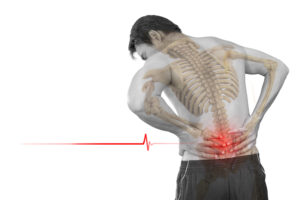The meat processing industry in the UK employs around 75,000 people, to undertake tasks such as animal handling, slaughter, butchery, and packaging. But if you have been injured at while working in this sector, what are your rights, and are you entitled to claim compensation?
Causes of injury in the meat industry
There are many potential risks to workers which employers in the meat sector must control. According to the Health and Safety Executive (HSE), the main causes of injury include :
- Being struck by hand tools including knives, especially during boning out
- Manual handling and lifting – especially lifting heavy and awkward loads
- Slips – mostly due to wet or greasy floors
- Machinery – such as conveyors, bandsaws, de-rinders, skinning machines, pie and tart machines, packaging machinery
- Transport – including forklift trucks and vehicles at loading bays
- Falls from height – off ladders, stairs, work platforms, plant and vehicles
- Exposure to harmful substances and hot objects, e.g. splashes/vapour from cleaning chemicals
From the start to finish of the meat supply chain, there are risks at each stage. In the initial phase, there are risks associated with animal handling; an average cow can weigh over a tonne, and any animal when frightened can respond in unpredictable ways, posing a potential crush risk to workers. The butchery phase requires the use of heavy machinery and sharp implements to break down the carcass into its end products for sale, any of which must be used in a safe manner. Training is, therefore, essential to ensure the health and safety of workers.
In the latter stages of meat processing, storage of items ready for further processing or sale will be required, hence it is vital to ensure that warehouses are designed and operated in a safe manner.
Meat processing firm, York House Meat Products, was fined last year after a worker was seriously injured by warehouse racking. The worker had been asked to work with two colleagues to make changes to shelving located at the top of a rack. When climbing up, one of the lower crossbars gave way beneath him, causing him to fall, hitting his head on a lower shelf, before hitting the floor. The loose crossbar then fell 3.2m onto his back and shoulders. He suffered soft tissue damage to his shoulder and was unable to work for two months. In investigating the incident, the HSE found the firm had failed to control the risks of working at height, in addition, no safe system of work had been provided. York House Meats was fined £90,000 and ordered to pay costs of £20,567.88 .
Common injuries in meat processing
The impact of accidents in meat processing most commonly fall into one of four categories:
- Manual handling injuries (e.g. caused by lifting or moving a heavy object) commonly lead to
 musculoskeletal injuries.
musculoskeletal injuries. - Work-related upper limb disorders (WRULDs) due to repetitive work such as from cutting, boning, jointing, trussing, and evisceration.
- Slips, trips and falls, perhaps due to wet or slippery surfaces
- Lacerations due to the use of sharp tools (e.g. saws and knives)
All of these injury types can be avoided by the effective assessment and control of risks by your employer. For example, the damage caused by repetitive work can be avoided by redesigning the work process, or changing the task being completed to one that requires a different set of repeated motions. Lacerations can be avoided by using safety guards on machinery and providing training in the proper use of butchery tools. And slips can be controlled by providing non-slip footwear and flooring, in addition to implementing stringent processing regarding the cleaning of spills. In essence, there is no excuse for allowing accidents to happen, and every risk can be controlled, therefore keeping workers safe.
Can I make a claim for compensation if I have been injured in the meat processing industry?
You will be able to make a claim for compensation if it can be clearly proven the accident happened as a direct result of your employer’s negligence. By contacting one of our specialist workplace accident solicitors, we will take the time to listen to the details of your accident, and advise you if your case fits the criteria to bring a claim. We will gather the necessary evidence to make your claim as robust as possible. Russell Worth handles many of the UK’s most complex workplace injury claims given our experience in this field over the past twenty years, and therefore you can be confident your matter is in the best hands. We will work quickly from the outset to make contact with your employer and their insurer, and will prioritise arrangements for any additional medical treatment and rehabilitation you need. We take most cases on a no-win-no-fee basis, therefore you can be assured you are covered financially in the event your claim is not successful. However, by taking your case on, you can relax in the knowledge we believe your case has strong merit and a robust chance of leading to a compensation pay-out to cover your damages and losses.
At Russell Worth Solicitors we specialise in personal injury claims. If you have suffered a workplace injury and would like a free claim assessment, please call us now on 0800 028 2060 or complete our Online Claim Assessment.

